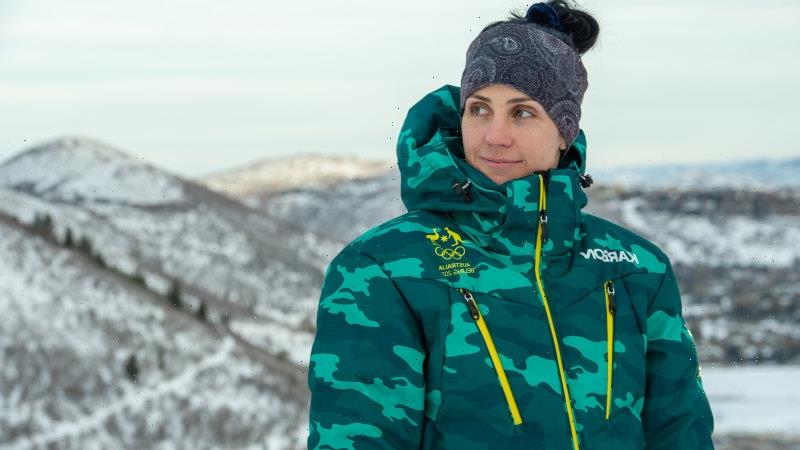Some Australian athletes will take ‘burner’ phones to China as safety and cyber security concerns persist less than two weeks out from the start of the Winter Olympics.
Australia’s chef de mission Geoff Lipshut revealed some athletes and coaches were following the lead of the US, Dutch, Canadian and British Olympic teams and leaving their personal electronic devices at home, using burner – or temporary – phones and laptops instead.
Lipshut said the Australian Olympic Committee was advising athletes to only use the internet from inside the Olympic village, but was leaving the matter of personal electronic devices up to each athlete.
“That’s up to individual choice,” Lipshut said. “There are some athletes and some coaches who will do that and others who won’t.
“We are being careful and we encourage athletes and coaches just to be careful and to really access online from our village. That will be the safest place.”
An advisory from the US Olympic and Paralympic Committee (USOPC) to its athletes and staff warned “it should be assumed that every text, email, online visit, and application access can be monitored or compromised”.
The USOPC recommended using disposable devices in China or wiping all data from personal phones and laptops before and after travelling there. It also recommended that members install virtual private networks (VPNs) on devices before leaving.
Australian Winter Olympian Laura Peel.Credit:
Despite these measures, there should be “no expectation of data security or privacy while operating in China,” the USOPC added.
The Netherlands, Great Britain and Canada are taking similar precautions. An AOC spokesman said Australian athletes would not be offered ‘burner’ phones – a temporary phone equipped with a prepaid SIM card – or temporary laptops but pointed out long-time IOC sponsor Samsung supplied every athlete with a phone for the duration of the Games.
With 42 of a likely 44-person Australian Olympic squad named on Sunday, final preparations are under way before the opening of the Games on February 4.
Many athletes will depart for Beijing in coming days from a variety of holding camps around the world, satisfying China’s rigorous pre-departure COVID-19 testing regime and uploading their results, as well as proof of double vaccination status, to a central database run by Chinese medical authorities.
But along with anticipation ahead of the start of the world’s benchmark winter sports event, anxiety is also building around potential Chinese government surveillance and general safety.
Lipshut said Australian authorities were watching the situation closely.
“We are taking the very best advice we can and also we’re watching how things change,” he said. “If there’s anything we’ve learnt over the last 18 months is that things change very fast. So what I am confident of is that if things do change we will be in a position to react very quickly.”
The Beijing Organising Committee have dismissed allegations of digital surveillance as “totally unnecessary” fears based on “zero evidence”.
Three-time Olympians Danielle Scott and Laura Peel say they trust the advice from Australian authorities on safety during the Beijing Winter Olympics.
Three-time Olympians Laura Peel and Danielle Scott, two of Australia’s best medal chances, are seasoned travellers to China and insist they are not worried about travelling there again.
“I can’t say I’ve had any issues,” Scott said. “If you go with a VPN you can access the internet and feel protected like you would at home. But I think it’s also kind of cool to see what their culture is like and what their internet is like as well.
Australian Winter Olympian Danielle Scott.
“I don’t think I’ll be going excessively cautious, it’s just maybe not doing anything financial or risky things you wouldn’t do anywhere around the world.”
The AOC are not discussing their IT protocols beyond Lipshut’s assurances their network would be “as secure as possible”.
Team officials have shared recommendations with athletes on their use of devices and communications inside China and Lipshut said once teams were on the ground it would be one of the safest places to be.
“The IOC have done a lot of work … the old saying is, if you want to be in the safest place in the world, you should be an athlete at the Olympic Games. I really think there will be less risk at the moment.”
The Beijing Organising Committee drew criticism in Australia with recent comments warning of “punishment” if any behaviour or speech was deemed to cross the line.
“Any expression that is in line with the Olympic spirit I’m sure will be protected,” said Yang Shu, the BOC’s deputy director-general of international relations.
“Any behaviour or speech that is against the Olympic spirit, especially against the Chinese laws and regulations, are also subject to certain punishment.”
Yang said, “the politicisation of sports is one of the things opposed by the Olympic Charter” and that “dedicated departments” would establish if any protests violated Chinese laws or Olympic regulations.
News, results and expert analysis from the weekend of sport sent every Monday. Sign up for our Sport newsletter.
Most Viewed in Sport
From our partners
Source: Read Full Article








